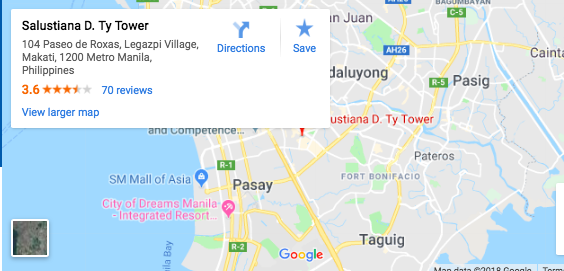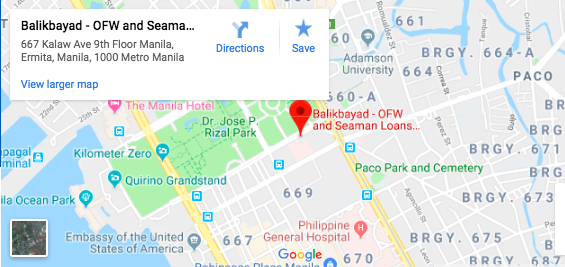It’s definitely the most wonderful time of the year, especially now that you are allowed to go back home even for a few weeks. We also know how excited you are to spend the holidays with your family.
Before you get too excited, there are certain things you need to remember as you prepare your trip back home. These are:
1. Make an Itinerary
You are heading back home, so you need to make plans on where to go, what to do, and things you need to accomplish. If you plan to open an account, update records, or apply for a loan, then make sure include this in your itinerary.. This will give you an idea on how to set your budget and make necessary preparation for possible expenses.
Why not just go with the flow? Spontaneity is fun, but you give yourself more room for temptation, at least when it comes to spending.
Therefore, make an itinerary. Having one allows you to make the most out of your stay in the country.
2. Rethink about Balikbayan Boxes
One of the things your family always looks forward to is your pasalubong.You’ve been away for some time and you want to bring home every possible thing you could to share to your family, relatives, and friends. Plus, it is a Filipino tradition to do this and share your blessings to others.
Before you fill those balikbayan boxes, think again.
To begin with, declaring international goods at Customs could be hassle. If you plan to send it in the Philippines, it will take a month or two before it arrives.
Instead, bring only a handful of gifts to people who matters. You can still bring pasalubong items like chocolates and food, but place these inside your luggage instead. If you insist on giving something for everyone, shop at Duty Free. This way, you don’t have to worry about baggage allowance since you’re back home. Just make sure you allot a specific budget for that.
3. AirBnB over Hotel Accommodation
Let’s say part of your itinerary is to have a staycation with the family. That’s fine. The question is where will you stay?
Hotel accommodation is tempting, but have you considered AirBnB?
The good thing about AirBnB is that it offers more affordable staying options for you and your family. You can get an entire house that could accommodate your entire family without paying too much. Plus, you can bring and cook food, thereby helping you save extra instead of eating out.
If you insist on trying out hotels for convenience, then that’s fine. There are hotels that offer affordable rooms.
4. Apply for OEC Online
OEC or Overseas Employment Certificate is among the most important documents you need to secure as proof that you are a legitimate OFW. The good news is returning workers will take easier path.
Instead of lining up in POEA, you can get an OEC online through Balik Manggagawa Online Processing System or BM Online. If you are staying in the country for five days or less, you can already get your OEC at the Labor Assistance Counter in the airport.
You can also read more about OEC for Balik Manggagawa here.
5. Take it Easy on Spending
Yes, you are earning in dollars and you are earning more compared to your old job in the Philippines. Still, this is not an excuse to splurge and give in to everyone’s demands.
This is why it is important to plan your stay in the Philippines. The itinerary will serve as your guide on how you will spend your vacation here. Also, learn when to say no to people, especially when money is involved. It’s not easy to earn money and surely, they have no idea about the sacrifices you went through just to provide a better future for your family.
Above all, enjoy and have fun while it lasts. Christmas is that one occasion you want to spend with your family. Make the most out of your stay.

 5/F Salustiana T. Dy Tower, Paseo de Roxas Legaspi Village, Makati City (near Greenbelt 1).
5/F Salustiana T. Dy Tower, Paseo de Roxas Legaspi Village, Makati City (near Greenbelt 1). 9/F TM Kalaw Center, 667 TM Kalaw St., Ermita, Manila
9/F TM Kalaw Center, 667 TM Kalaw St., Ermita, Manila